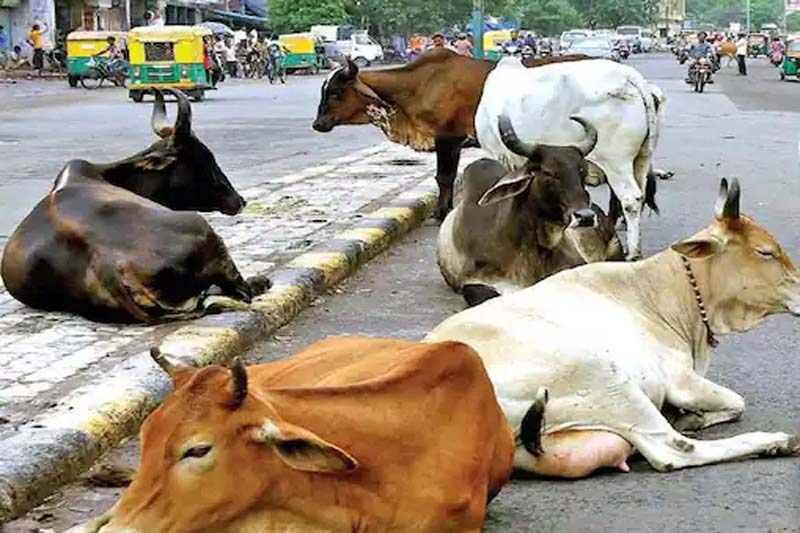Within less than 10 days of the Gujarat Government having to stop the controversial Par-Tapi-Narmada Riverlinking Project, the State Government has been forced to eat the humble pie over the Gujarat Cattle Control (Keeping and Moving) in Urban Areas Bill, 2022, passed by the State Assembly after a six-hour debate on March 31.
Both the State Government decisions have been forced by huge public protests in an election year when the ruling party could ill-afford to rub the tribals, in the case of the riverlinking project, and the maldharis (cattle rearers), over stray cattle bill, on the wrong side.
If State Government spokesperson Jitubhai Vaghani said the stray cattle law would remain on hold, it was on March 29 that BJP president CR Paatil announced that the Centre had agreed to put the Pari-Tapi-Narmada river inter-linking project on hold following opposition from tribals living in areas that were likely to be submerged due to the project.
CR Paatil, significantly, said, “I think that there are enough provisions in the Gujarat Municipalities Act to curb the cattle menace in the state. Some leaders have made their representation to me and I requested Gujarat chief minister (Bhupendra Patel) to look into the matter and reconsider the decision. The chief minister’s response was very positive and I am sure the government will rethink,” he had said on Monday. And the rethink has happened.
The Gujarat Cattle Control (Keeping and Moving) in Urban Areas Bill, 2022, was introduced in the assembly on March 31 and was passed on the same day after a marathon debate. Congress legislators had opposed the bill but the BJP with a majority of 111 legislators in the 182-seat assembly pushed through it. Now, it is having to eat humble pie.
Coming after a Gujarat High Court directive, in any case, the bill was aimed at keeping stray cattle out of the state’s eight major cities – Ahmedabad, Vadodara, Surat, Rajkot, Gandhinagar, Jamnagar, Bhavnagar and Junagadh – and 162 towns with municipalities notified as urban areas. It bars people from having cattle in these areas without the approval of the municipal authorities and requires those with a license to geo-tag the cattle.
Under the law, a cattle-rearer will be required to obtain a licence from the competent authority for keeping cattle in eight cities and 156 towns of Gujarat, and the cattle will have to be tagged within 15 days of obtaining a licence.
















